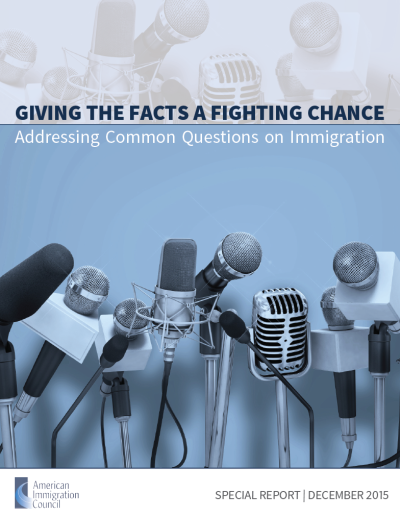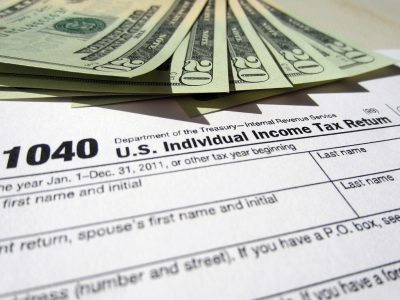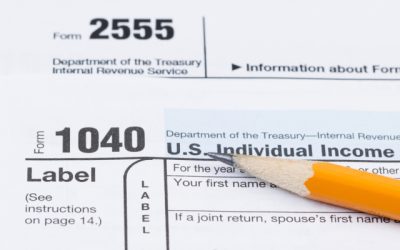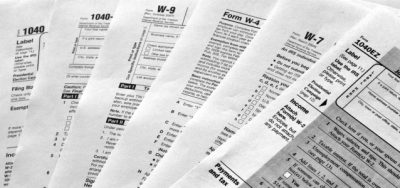Tax Contributions
Do undocumented immigrants pay taxes?
Undocumented immigrants play a crucial role in the U.S. economy, not only through their labor but also through substantial tax contributions that support public services and government programs. In 2023, households led by undocumented immigrants paid $89.8B in total taxes. This includes:- $33.9B in state and local taxes and $55.8B in federal taxes.
- In 2023, approximately 4.9% of the U.S. workforce was undocumented.
- 89.4% of undocumented immigrants are of working age.

Undocumented Immigrants Pay Billions in State and Local Taxes
Undocumented immigrants contribute to the U.S. economy in many ways. They fill essential jobs, they sustain U.S. businesses through their purchase of goods and services, and—contrary to popular misconceptions—they pay taxes to federal, state, and local governments. Their contributions would be even greater if they had a chance to… Read More

Giving the Facts a Fighting Chance: Addressing Common Questions on Immigration
Americans pride themselves on belonging to a nation of immigrants. In fact, many Americans celebrate not only the traditions of the United States, but the traditions of the countries from which their families came. Today, immigrants make enormous contributions to our economy and our communities—just as they always have. Yet… Read More

How Much Do Undocumented Immigrants Pay in State and Local Taxes?
Undocumented immigrants contribute to the U.S. economy in many ways. They fill essential jobs, they sustain U.S. businesses through their purchase of goods and services, and they pay taxes to federal, state, and local governments. Their contributions would be even greater if they had a chance to earn legal… Read More

Deferred Action for Undocumented Immigrants Could Add Billions in Taxes to U.S. Economy
There’s no question that improving the United States’ outdated immigration system would help the economy. The Senate-passed immigration bill S. 744 would have, if enacted, reduced the federal budget deficit by approximately $1 trillion over 20 years and led to an increase in wages for U.S. workers. But House leaders… Read More

Undocumented Immigrants Contribute Billions in Taxes
Death and taxes, according to Benjamin Franklin, are the only things in life that are certain. And despite the prevailing myth perpetrated by nativist groups, there are plenty of undocumented immigrants facing the certainty of taxes on April 15. They pay billions in state and local taxes every year… Read More

Targeting Immigrant Taxpayers as a Matter of Course
Unfortunately, there is a new fallback position for some members of Congress when it comes to finding ways to save money. That position is eliminating the Additional Child Tax Credit for immigrant taxpayers. This has been proposed in the past by other members of Congress; however, the latest iteration is in the form of an amendment that Senator Kelly Ayotte (R-NH) proposed to “pay for a three-month extension of unemployment benefits by stopping a scheme that currently allow {sic} illegal immigrants to claim the Additional Child Tax Credit.” Read More

New Estimates of State and Local Taxes Paid by Undocumented Immigrants
Undocumented immigrants who live and work in the United States pay billions of dollars in taxes every year to state and local governments. Given the chance to earn legal status, they would pay even more. Those are the simple yet powerful conclusions of a new study by the Institute on Taxation and Economic Policy (ITEP). According to ITEP, “undocumented immigrants paid an estimated total of $10.6 billion in state and local taxes in 2010.” Moreover, “allowing undocumented immigrants to work in the United States legally would increase their state and local tax contributions by an estimated $2 billion a year.” In short, legalization pays. Read More

Social Security Administration Says Immigration Reform Will Increase Tax Revenue, Boost Economy
Will the immigration reform bill create millions of jobs, boost GDP, and help balance the budget? A new report by the Social Security Administration says that it will, by putting undocumented immigrants on the tax rolls and allowing them to participate fully and legally in the U.S. economy. Read More

Fatally Flawed: FAIR Blames Immigrants and Children for Maryland’s Financial Problems
In a case of very creative accounting, the nativist Federation for American Immigration Reform (FAIR) is blaming immigrants and children for Maryland’s fiscal woes. In a new report, FAIR lumps together unauthorized K-12 immigrant students with U.S.-born students who have unauthorized parents and claims that they are all costing Maryland taxpayers astronomical sums in educational expenditures. However, the report, entitled The Cost of Illegal Immigration to Marylanders, suffers from several fatal flaws. Read More

Immigrant Tax Contributions and the Future of the U.S. Economy
When it comes to the topic of immigration, Tax Day is a reminder of two important and often-overlooked points. First, immigrants pay billions in taxes every year. This is true even of unauthorized immigrants. Second, the federal government spends billions of taxpayer dollars each year on immigration-enforcement measures that wouldn’t be necessary if not for the chronic inability of Congress to reform our badly outdated immigration system. In other words, there is a strong fiscal case to be made for immigration reform. Were the U.S. immigration system to be given a 21st century overhaul, we would likely increase the tax dollars flowing from the immigrant community, and we would spend far less taxpayer money on immigration enforcement. Read More
Make a contribution
Make a direct impact on the lives of immigrants.
